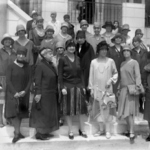 Katerina Dalacoura, Vaia V. Geragori, Maria Paitaki, Vasiliki Papadopoulou, and Kostas Tsampouras (Crete), Krassimira Daskalowa and Valentina Mitkova (Sofia), Giorgos Manios (Athens), and Ivana Pantelić (Belgrade) (Web)
Katerina Dalacoura, Vaia V. Geragori, Maria Paitaki, Vasiliki Papadopoulou, and Kostas Tsampouras (Crete), Krassimira Daskalowa and Valentina Mitkova (Sofia), Giorgos Manios (Athens), and Ivana Pantelić (Belgrade) (Web)
Time: 28.-30.11.2024
Venue: Univ. of Crete, Greece
Proposals by: 31.07.2024
The First World War was followed by an increased and intensive political movement aiming to eliminate likelihood of new wars and consolidate peace on a global scale. This movement is reflected in the foundation of international peace and diplomacy organizations, with the League of Nations prevailing among them, the signing of a series of treaties between states securing the new border status quo, minority treaties and amity and cooperation agreements, as well as in elaborated visions of forming „state federations“ across Europe. In this context, the Balkan states with a long history of competing nationalisms, wars, and rallying to rival war camps, gradually shifted towards pursuing political rapprochement and mitigating national-political differences, while the new Central European states that had arisen from the dissolution of the central empires and the redrawing of national borders sought alliances to enhance security against presumptive revisionist attempts by neighboring countries. At the same time, the unsolved national-transnational political issues and the new ones created by the post-war treaties, most notably that of ethnic minorities, the rivalries of the victorious Great Powers in the region, the gradual dominance of totalitarian and bellicose politics and the risk of a new great war that began to loom on the horizon, prioritized national security and acted as centrifugal forces from ‚the transnational and international‘ to ‚the national‘, while the revisionist and anti-revisionist camps and politics began to form distinct.
In this context, feminist movement, reconstituted and increased in density and massiveness, found a fertile ground for linking its activity to international politics and diplomacy. International women’s organizations (feminist, professional, peace organizations), national affiliated organizations, as well as regional associations emerged at the time, recognizing that progress towards full political and social rights and security for women depends on a peaceful and stabilized world, declared it „their duty“ to work for … read more (Web).
Source: H-Net Notifications

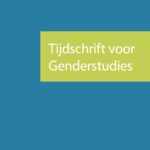 Tijdschrift voor Genderstudies
Tijdschrift voor Genderstudies 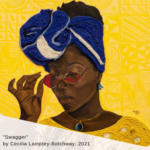 2024 Roundtable for Black Feminist & Womanist Theory
2024 Roundtable for Black Feminist & Womanist Theory  Österreichische Gesellschaft für Geschlechterforschung (ÖGGF)
Österreichische Gesellschaft für Geschlechterforschung (ÖGGF)  Gender Campus
Gender Campus 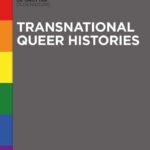 de Gruyter
de Gruyter 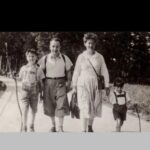 Dokumentation von Helene Maimann (A, 2016, 53 Min.): Käthe Leichter – Eine Frau wie diese
Dokumentation von Helene Maimann (A, 2016, 53 Min.): Käthe Leichter – Eine Frau wie diese 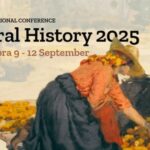 European Rural History Organisation (EURHO)
European Rural History Organisation (EURHO)